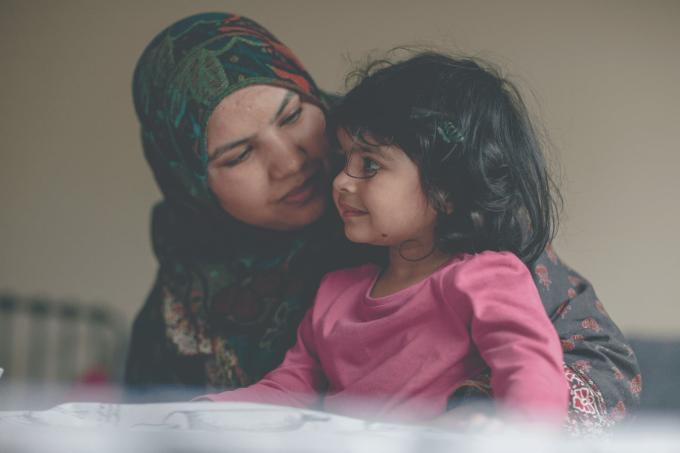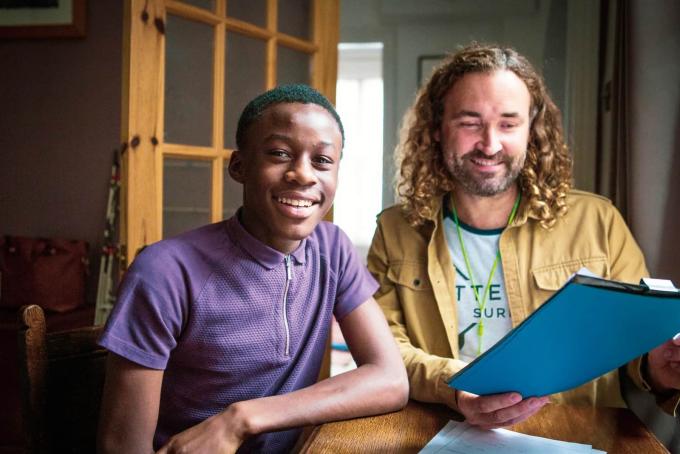If a young person comes to you to speak about alcohol or other drugs, it’s important not to be judgmental and actively listen to them.
Children, especially teenagers, could hear about or be introduced to drugs and alcohol on social media, through friends or the media, so giving them the space to talk openly about alcohol and other drugs is really important.
If you’re a parent or career, it’s a good idea to educate yourself on the topic, so if conversations around alcohol and other drugs happen you feel prepared.
Why it’s good to talk
Creating a non-judgemental dialogue with a young person shows them they have someone to trust and come to.
It also allows you to make sure they are aware of the law, and most importantly the risks in using these substances.
Our research shows that teaching young people about resilience and encouraging them to develop decision making skills prevents risky behaviour and promotes wellbeing and self-esteem.
Remember that many people may use alcohol and other drugs to cope with problems they are facing or, for young people especially, to feel included where others are using them.
Ultimately, encouraging these conversations helps put the young person’s safety first, and creates a safe space for support.
Start with short open conversations
Talking to young people about alcohol and other drugs can feel difficult, but starting with brief, open conversations is a good place to begin.
It’s better to have a few of these conversations over time, as this way the young person is less likely to feel overwhelmed or like you are lecturing them.
Just saying something is wrong won’t stop a young person taking risks, so take the time to speak together to build their trust in being open with you.
If you’re not sure where to start, you could try using cues such as alcohol or other drug issues on TV and in the media.
Stay calm
Talking to your child about drugs can feel difficult and finding out they are using drugs (including underage drinking) can be upsetting to hear. However, it is important to stay calm and remember that getting angry may stop them from talking to you about this in the future.
Removing the stigma and threat of punishment will allow them to open up to you, trust you, and gives you a better opportunity to hear what has been going on.
Talking to them in a respectful and calm manner will show them that they can trust you and will encourage them to be more open.
Discuss the risks
It’s important to talk to young people about the effects alcohol and other drugs can have so they are aware of the associated risks:
Alcohol
It’s likely that children will be offered alcohol at some point, but you can help prepare them by:
-
ask what they would do if someone offered them alcohol
-
tell them the risks of drinking alcohol (i.e anti-social behaviour, losing some/all control of their body)
-
remind them to keep themselves safe (i.e by drinking in moderation, telling friends/parents where they are)
-
make them aware that drinks can be spiked and discuss how to stay aware of the risks
For more information and guidance about alcohol, you can visit the Drink Aware website here.
Other drugs
If you feel nervous speaking about other drugs, familiarising yourself beforehand can help. There are resources available to help you do this, including the website Frank which has glossaries and honest information about drugs.
It’s important to discuss with young people that drugs could:
-
make them more vulnerable to harm
-
affect both their physical and mental health
-
lead to anti-social behaviour
-
put them at risk of exploitation
Remember:
-
don’t be judgmental, listen to the young person
-
hear everything they have to say
-
remind them they are not in trouble
-
talk positively about help available, rather than punishing them
Help and support for alcohol and other drug misuse
If you’re worried that a child could be at imminent risk, always call 999 immediately.
If you’re concerned that a child may be at non-immediate risk, there are services you can contact for support. The information you have may help professionals to build a better picture about what might be happening to the child and help them.
Support services
We Are With You
Free, confidential, online support for people experiencing issues with alcohol, other drugs, and mental health.
We Are With You have over 80 services and have a free online chat function where you can access support. Find out more about these services by visiting the We Are With You website here.
FRANK
Friendly and confidential advice on drugs.
FRANK is a website that has honest information about drugs, details of local and national services, and where to go to if you need help. You can find out more information on the FRANK website here.
Crew
A harm reduction and outreach charity based in Scotland.
Crew offer free, digital drop-in services and in-person drop-ins in Edinburgh. To find more information about these support services and information on alcohol and other drugs, visit their website here.
Adfam
A national charity tackling the effects of drugs and alcohol on family members and friends.
Adfam empowers families and friends to get the support they need, you can find out more about their services on their website here.
Alcohol Specific Support Services:
Drinkline
A confidential helpline for anyone concerned about drinking. Call them free on 0300 123 1110.
Drink Aware
Drinkaware provides independent alcohol advice, information and tools to help people make better choices about their drinking. You can find more guidance on Drink Aware’s website here.
Other ways to get support:
-
your GP surgery can provide you with advice or refer you for extra support
-
contact a local treatment provider and refer yourself, or a local community alcohol support service like AA or SMART Recovery directly
Get help if you're worried about a child

Support for parents and carers
Find out about the support, guidance and services we offer to parents, carers and families to ensure that every child grows up safe and loved.

Mental health and emotional wellbeing support for young people
We offer a range of mental health support services, as well as online tips and guidance for your wellbeing.

Further support for young people
We support young people who are young carers, care leavers, those looking to gain workplace skills, LGBT+ those at risk of homelessness.

